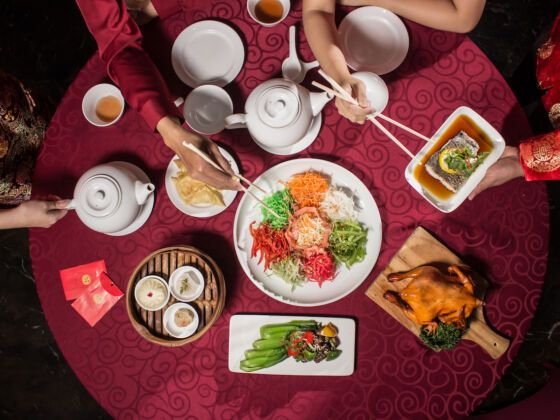“Actually, we should write a letter to the local newspaper to interview us. On a Sunday, when we’re doing it,” said my uncle longingly, while chopping up some pickled leek.
To his right was a large rectangular table where some ten small round plastic containers of pickled ginger and the like are stacked on top of each other. Somewhere at the back of the kitchen lay a 20-inch flat bamboo basket of shredded white and green radishes. And opposite him stood Indri, the helper of his household for the past 6 years, diligently shredding carrots with a mandoline to prepare for the big event of the night.
